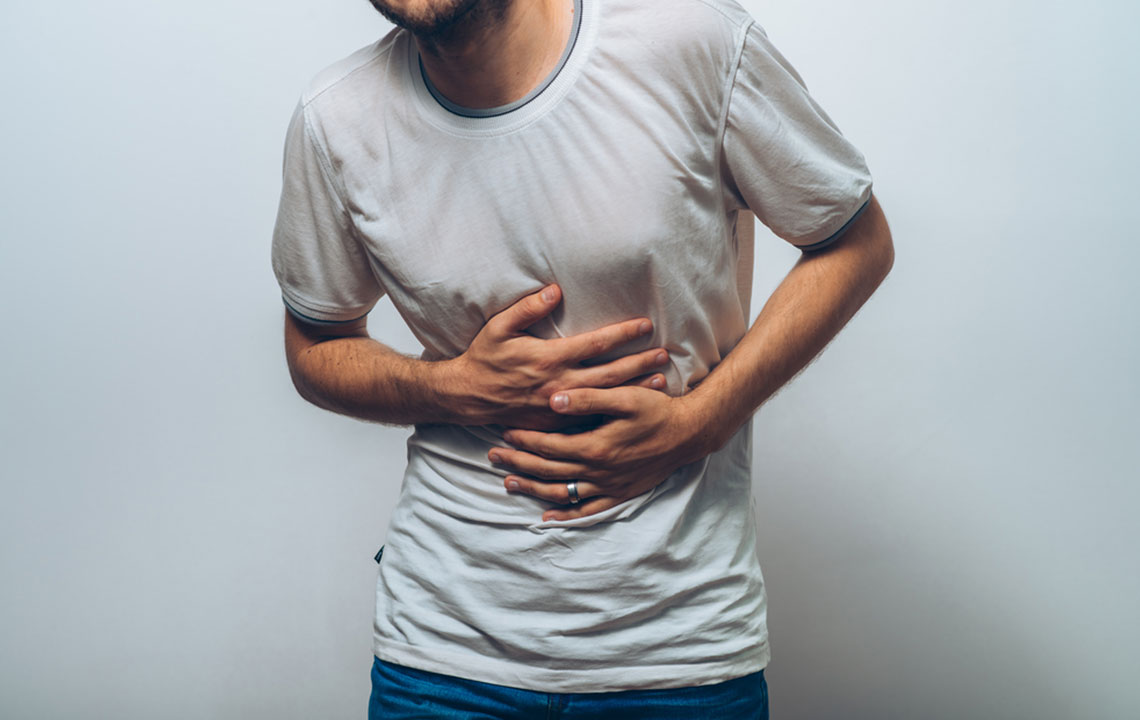Ulcerative Colitis Explained: Causes, Symptoms, and Effective Treatment Strategies
Ulcerative colitis is a chronic inflammatory disease impacting the large intestine lining, causing symptoms like abdominal pain, diarrhea, and bleeding. Early diagnosis and personalized treatment—including medications, lifestyle adjustments, and sometimes surgery—are essential for effective management. This comprehensive guide covers causes, symptoms, and various treatment options to help patients better understand and manage their condition, aiming to improve quality of life and prevent serious complications.

Ulcerative Colitis Explained: Causes, Symptoms, and Effective Treatment Strategies
Ulcerative colitis (UC) is a long-term inflammatory condition that primarily targets the innermost lining of the large intestine, including the rectum. This disease affects hundreds of thousands of people annually, with current estimates indicating that around 750,000 Americans live with UC, although the actual numbers may be higher due to undiagnosed cases. Early detection and prompt medical intervention are crucial in managing symptoms, preventing complications, and improving overall quality of life for affected individuals.
Understanding Ulcerative Colitis
Ulcerative colitis falls under the umbrella of inflammatory bowel diseases (IBD). It involves persistent inflammation of the colon's mucosal lining, leading to a range of gastrointestinal symptoms. The disease process often starts gradually and can affect individuals between the ages of 15 and 35, though it can occur at any age. The inflammation in UC causes ulcerations in the colon's lining, which can lead to bleeding, pain, and alterations in bowel habits. While many patients manage their condition with treatment, severe cases can escalate to serious health issues, including dehydration, infections, or, in exceptional circumstances, colon rupture. Recognizing early signs of UC is essential to avoid complications and start treatment promptly.
Key Symptoms of Ulcerative Colitis
Symptoms of UC can vary depending on the severity and extent of inflammation. Common signs include abdominal cramping and pain, urgent urge to defecate, frequent bowel movements, and diarrhea. Blood in stool is a typical symptom, indicative of ulceration and bleeding within the colon. Other symptoms include rectal discomfort, cramps, fatigue, weight loss, and fever during flare-ups. Recognizing these symptoms early can lead to more effective treatment interventions, preventing disease progression and improving outcomes.
Causes and Contributing Factors of UC
Genetic Predisposition: A family history of UC increases the risk by approximately 30%. Genetic predisposition plays a significant role, with ongoing research identifying multiple genes associated with increased susceptibility.
Environmental Factors: Environmental triggers such as bacterial or viral infections, diet, lifestyle, and exposure to certain chemicals may activate or exacerbate UC. These triggers can disrupt the immune system, leading to inflammation in genetically susceptible individuals.
Immune System Dysregulation: A key aspect of UC involves an overactive immune response where the immune system mistakenly targets the colon's lining, mistaking it as a threat. This autoimmune response causes persistent inflammation. Research suggests that up to 30 specific genes might influence this immune overreaction, making some individuals more prone to develop UC.
Medical and Natural Treatment Options for UC
Diagnosis and Treatment Planning
Effective management of UC begins with accurate diagnosis through colonoscopy, blood tests, stool analysis, and imaging studies. These help assess the extent of inflammation, locate ulcerations, and determine disease severity, guiding the treatment approach. Treatment options are tailored based on individual factors such as age, overall health, and disease activity.Conventional Medical Treatments
Anti-inflammatory Drugs: Mesalamine and sulfasalazine are commonly prescribed for mild cases to reduce inflammation and maintain remission.
Corticosteroids: Medications like prednisone are used during flare-ups to suppress immune activity. However, they are not suitable for long-term use due to potential side effects such as osteoporosis, weight gain, and increased infection risk.
Immunomodulators: Drugs like azathioprine and methotrexate help control immune responses in more severe cases.
Biological Therapies
Biologics such as infliximab (Remicade) and adalimumab (Humira) target specific inflammatory proteins, notably tumor necrosis factor-alpha (TNF-alpha), to suppress inflammation. These are recommended for moderate to severe UC cases that do not respond well to conventional treatments. Under strict medical supervision, biologics can significantly improve quality of life but come with potential risks like increased infection susceptibility.Surgical Options
When medication fails to control symptoms or complications arise—such as severe bleeding, perforation, or unremitting inflammation—surgical removal of the colon (colectomy) may become necessary. This procedure can be curative, effectively eliminating UC. Approximately one-fifth of patients may require surgery during their lifetime, often as a last resort after exhausting medical therapies.Natural and Lifestyle Modifications
Probiotics: Incorporating beneficial bacteria can help restore gut flora balance, potentially reducing inflammation and flare-ups.
Stress Management: Techniques such as meditation, yoga, mindfulness, and deep-breathing exercises can decrease stress-related triggers that worsen UC symptoms.
Complementary Therapies: Acupuncture and traditional massage therapies may aid in alleviating muscle tension and inflammation, providing additional symptom relief.
Dietary and Nutrition Tips
Optimizing your diet plays a pivotal role in managing UC. Some dietary modifications include:
Anti-inflammatory Foods: Incorporate turmeric (rich in curcumin), omega-3 fatty acids from fish oil, and aloe vera, which possess natural anti-inflammatory properties. Consult your healthcare provider before starting any supplement regimen.
Gut-friendly Foods: Consuming butyrate-rich foods such as fermented vegetables and healthy fats like clarified butter can support gut health.
Minimize Irritants: During flare-ups, opt for low-fiber, cooked fruits and vegetables to reduce bowel irritation, and avoid raw produce or spicy foods.
Stay Hydrated: Drinking adequate fluids helps maintain gastrointestinal health and minimize inflammation.
It is essential to monitor individual food sensitivities, as different patients may react differently to various diets. Additionally, avoiding smoking, limiting alcohol consumption, and maintaining a robust overall healthy lifestyle can help prevent disease relapse and flare-ups.In conclusion, ulcerative colitis is a complex autoimmune condition that demands comprehensive management involving medical treatment, dietary modifications, and lifestyle changes. Early diagnosis, personalized treatment strategies, and effective symptom management are vital to maintaining an active, healthy life and preventing long-term complications.





